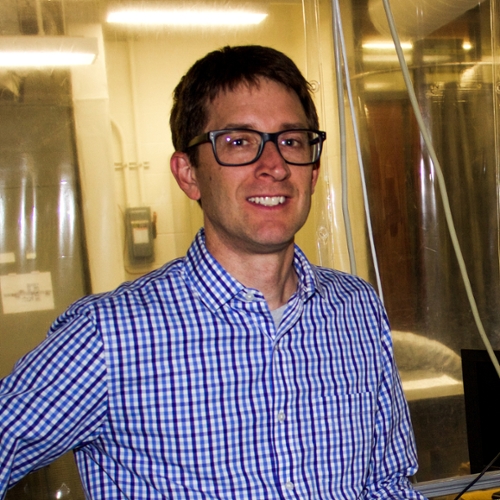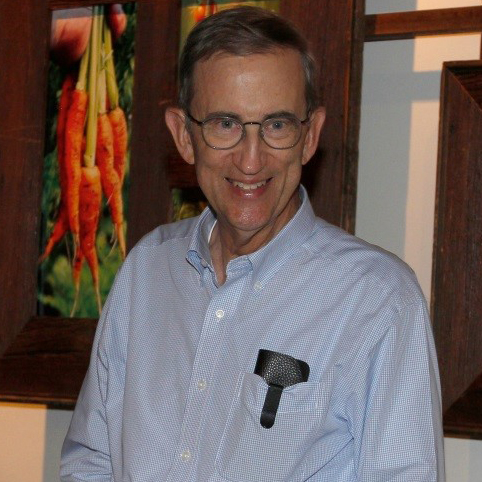Department News
Chemistry Professor David McCamant wins Inaugural College Award For Undergraduate Teaching and Research Mentorship
 Congratulations to Dave McCamant for being selected as the first recipient of The College Award for Undergraduate Teaching and Research Mentorship. Thanks to the generous support of Frederick D. and Susan Rice Lewis in 2017, the College Award for Undergraduate Teaching and Research Mentorship recognizes a tenured faculty member in Arts, Sciences and Engineering who excels as a scholar, teacher, and mentor of undergraduate students. The College will honor Dave at the Undergraduate Research Exposition and Awards Presentation on Friday April 20, 2018 at 3:00pm in Flaum Atrium.
Congratulations to Dave McCamant for being selected as the first recipient of The College Award for Undergraduate Teaching and Research Mentorship. Thanks to the generous support of Frederick D. and Susan Rice Lewis in 2017, the College Award for Undergraduate Teaching and Research Mentorship recognizes a tenured faculty member in Arts, Sciences and Engineering who excels as a scholar, teacher, and mentor of undergraduate students. The College will honor Dave at the Undergraduate Research Exposition and Awards Presentation on Friday April 20, 2018 at 3:00pm in Flaum Atrium.
Professor McCamant received his BA from Wesleyan University in Connecticut and then his PhD from UC Berkeley in 2004, working with Professor Richard Mathies to develop femtosecond stimulated Raman spectroscopy as a new method to collect high-resolution vibrational spectra of ultrafast photochemical events. From 2004-06, he worked with Prof. Michael Wasielewski as a postdoc at Northwestern University, studying photoinduced charge-transfer compounds. He started as an Assistant Professor at the University of Rochester in 2006 and was promoted to Associate Professor in 2012. Dave is interested in light-matter interactions and how those interactions allow us to understand how things at the molecular scale move around and exchange energy.
Over the course of the last 12 years, Dave has taught a large service class (General Chemistry - CHM132) for three semesters, the large General Chemistry Laboratory lecture (CHM131L) once and our advanced laboratory for chemistry majors, Chemical Instrumentation (CHM231 and CHM231W) eleven times. Through those courses, he has taught 1,324 students in the CHM131/132 introductory series and 271 advanced chemistry majors. Dave has worked with 21 different students, producing 12 different senior theses and 4 peer-reviewed publications with undergraduate authors. Students in the McCamant lab have built optical components for his femtosecond laser system, developed new theoretical treatments of spectroscopy, probed the mechanisms by which ultraviolet light damages DNA, developed new spectroscopic methods to probe how molecules bind to semiconductor nanoparticles and calculated electronic structures of various DNA bases and dye molecules. Students from the McCamant lab have had excellent success in graduate school and in the workplace after UR.
This award recognizes the important relationship between classroom learning and mentorship through research opportunities. It salutes those tenured faculty members who teach large, introductory classes, as well as advanced seminars, independent study projects and mentor research experiences, especially involving laboratory training in the sciences and engineering. Dr. Lewis (Ph.D., ’68), whose career spanned 48 years in teaching and research at Northwestern University, said that the intent of the award is to “reward tenured faculty members who continue to fulfill the promise, every day and every year, of being outstanding teachers, mentors, and scholars.”
 Frederick Lewis was surrounded by mentors while working toward his doctorate in organic chemistry at the University. “My Ph.D. advisor was William Saunders,” Lewis says. “He was wonderful, a hands-off mentor who let me go at my own speed. Two other professors, Jack Kampmeier and Marshall Gates, were role models for what an academic scientist should be. All three made an impact on me.”
Frederick Lewis was surrounded by mentors while working toward his doctorate in organic chemistry at the University. “My Ph.D. advisor was William Saunders,” Lewis says. “He was wonderful, a hands-off mentor who let me go at my own speed. Two other professors, Jack Kampmeier and Marshall Gates, were role models for what an academic scientist should be. All three made an impact on me.”
Although Lewis left Rochester 50 years ago to embark on what would become a 48-year career as a chemistry professor at Northwestern University, he has remained in touch with Rochester’s chemistry department and remembers the inspiration he felt on campus. “I wanted to give something back,” he says. “Teaching awards are almost always about classroom teaching,” Lewis says. “To me, it’s so important that we mentor students who will be future scientists, and that’s done more in the lab than the classroom. The classroom is where you get students interested in going to a lab. The lab is where you get them engaged.”
